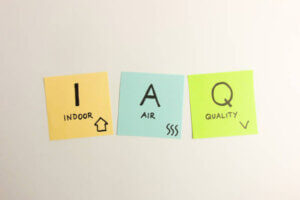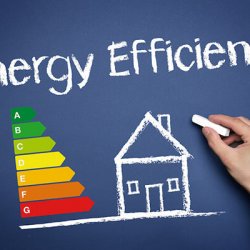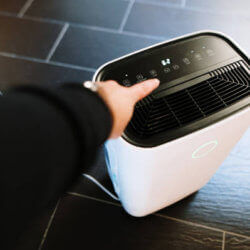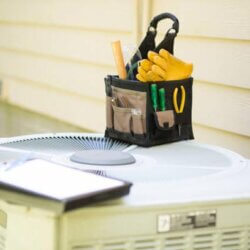
A number of factors, including light exposure, noise levels, and mattress comfort, can affect sleep quality. The temperature in your immediate surroundings, aka ambient temperature, is another determinant of whether you will enjoy restful or disturbed sleep. In this post, we discuss the impact of indoor climate on sleep, with examples of relevant studies.
As a leading heating and air conditioning contractor serving St. Louis since 1950, Galmiche & Sons helps residents of St. Louis, MO create a healthy home environment. If you want to make your indoors more comfortable, we can provide the right solutions. For more information or to request a quote for a new HVAC system upgrade, call us at 314-993-1110 today.
How Does Temperature Affect Sleep Quality?
A study found that very high or very low ambient temperatures may affect sleep quality in healthy humans. Disturbed nocturnal sleep was also found to affect daytime activities, and was associated with obesity, poor quality of life, and even mortality, underscoring the importance of maintaining an optimal indoor climate for good sleep.
Your body temperature drops a couple of hours before your natural bedtime, signaling to your brain that it is time to sleep. A room temperature that is too hot or too cold can disturb this thermoregulation and make it difficult to sleep.
The ideal sleeping temperature is between 60 and 67 degrees Fahrenheit. Using your HVAC to maintain a temperature in this optimal range can help promote restful sleep.

How Does Humidity Impact Sleep Quality?
Similarly, a Sleep Foundation article discussing the impact of indoor climate on sleep quality found that high humidity can increase wakefulness and reduce the amount of time spent in slow-wave non-rapid eye movement (NREM) and REM sleep.
The sleep cycle consists of three stages. In stage 1 NREM, you start drifting to sleep. In stage 2 NREM, your heartbeat, breathing, muscle activity, and eye movements continue slowing down. Stage 3, known as slow-wave NREM sleep, is the deepest stage of NREM sleep, during which your bodily functions slow down and allow restorative and reparative processes to take place. REM sleep is a different sleep stage characterized by an increase in brain activity and rapid eye movements. This is the stage where dreaming and memory consolidation occur.
High humidity increases wakefulness and reduces the time spent in slow-wave NREM and REM sleep, potentially delaying physical recovery and healing, and creating issues with memory consolidation.
Additionally, an indoor climate characterized by high humidity can exacerbate asthma symptoms and cause breathing discomfort that prevents you from sleeping easily or deeply. Very low humidity can also affect sleep due to issues like itchy eyes and skin.
HVAC Tips to Improve Your Sleeping Environment
If you are looking to optimize your indoor climate for the best sleep, your HVAC system can help. Here are some ways in which you can plan your HVAC solutions for better sleep quality:
- Install a humidifier or a dehumidifier – depending on the needs of your home – to keep humidity levels between 30%-50% and help create a sleep-conducive indoor climate.
- Set your thermostat to the optimal sleeping temperature. Try different temperature settings to identify the optimal range that helps you and family members get restful sleep.
- A loud HVAC can disrupt sleep patterns. Investigate the reason for irregular noises, if any, from your HVAC system. If your current system is aging, there is also the option to switch to a quieter HVAC system.
- Use high-quality filters to capture most small and miniscule airborne pollutants. A cleaner indoor climate can help family members with allergies or respiratory issues sleep better.
Contact Galmiche & Sons for Indoor Climate Solutions in St. Louis
If you are looking to improve your quality of sleep as well as comfort at home, the experts at Galmiche & Sons can help. Consult our HVAC experts to understand how you can improve your indoor climate and enjoy better sleep. Call us at 314-993-1110 or reach us online to learn more.









